Happy Birthday Parker!
Today, in honor of Parker Palmer’s birthday, we’ve been searching for the perfect quote to capture all that Parker has done as a champion of teachers, as an advocate for integrity and heart in democracy, and as a leader who shares his wisdom as well as his vulnerabilities.
Well, that’s a a pretty tall order. So, we focused on finding a passage that speaks to teachers and has something to say to our current moment in time. We found it in Parker’s Foreword “Listening to Teachers” from Sam Intrator’s Stories of The Courage To Teach: Honoring the Teacher’s Heart. The book is a collection of essays, written by teachers at every level of practice, that describe their efforts to serve their students, rekindle their passion for teaching, and work toward creating educational institutions that seek to be places that, as Parker writes, “bring more light and life into the world.” While the Foreword was written in 2002, I think you’ll find that the excerpts below could have been written today.
As a present to Parker, please consider making a special gift to the Center for Courage & Renewal. Your gift will be doubled – in honor of Parker’s birthday – by a generous matching grant, if you make your gift by midnight TONIGHT: bit.ly/Luv4PJP
As a gift to yourself, pick up any one of his books and dive in! In The Courage to Teach to Let Your Life Speak to Healing the Heart of Democracy and his other books, he has words of wisdom for our time and our hearts. Thanks Parker!
Listening to Teachers
— Parker J. Palmer
Teachers as Culture Heroes
America’s teachers are the culture heroes of our time. Daily they are asked to solve problems that baffle the rest of us. Daily they are asked to work with resources nowhere near commensurate with the task. And daily they are berated by politicians, the public, and the press for their alleged failures and inadequacies.
This scenario may apply with special force to K-12 teachers in our public schools, but people who choose to teach in colleges and universities are often caught in a similar bind. In higher education, the choice to teach—that is, to care for students—frequently comes at considerable personal cost, because academic culture supports and rewards people who devote their energies to research and publication. “Don’t worry about teaching”, young faculty are often advised. “Worry about the research and publications you’ll need to get tenure.”
What Jacques Barzun said about teaching fifty years ago remains true today, at every level of education: “Teaching is not a lost art, but the regard for it is a lost tradition.”
It is bad enough that we lack regard for our teachers. It is even worse that we blame them, as we often do, for causing the very problems we want them to solve! “If you people would only teach values—or let the children pray in class, or get back to basics, or keep their noses to the grindstone—there wouldn’t be so much crudity and crime in our society.” It would be laughable—if it were not so cowardly, stupid, and cruel—that we, as a society, create private and public situations that breed vulgarity, violence, and neglect of the young, then lay the blame on a group of professionals who are more devoted to our children than many of us are!
If you are not a teacher, and are skeptical either about their plight or their dedication, I have a suggestion to make: visit a public school near you and shadow a couple of teachers for a couple of days. Almost certainly you will witness for yourself the challenges teachers face, their lack of resources, and the deep demoralization they feel about serving as scapegoats for our nation’s ills.
But you will also witness teacher after teacher transcending these conditions and caring for young people in remarkable ways. You will see teachers who bring sandwiches from home for youngsters who arrive at school hungry; who use their own money to buy unbudgeted classroom materials that students need to take next steps; who offer solace and encouragement to children and young adults who, for good reason, sometimes feel helpless and hopeless. They do all this in spite of everything because they have a deep passion to help children learn and grow.
Caught in an anguishing bind between the good work they do and public misperceptions that surround them, hundreds of thousands of teachers somehow keep the faith and keep going—and we can be grateful that they do. Barzun got it right: though regard for teaching is a lost tradition, teaching, miraculously, is not a lost art. Every day in classrooms across the land, good people are working hard, with competence and compassion, at reweaving the tattered fabric of society on which we all depend.
But, understandably, these good people are also leaving the profession at record rates these days (fifty percent of them depart within five years), and we are paying the price. We need to stem this outgoing tide, and we might do so if we gave teachers what they deserve: something more fitting than endless demands and mindless criticism. We who depend on their efforts owe our teachers a gift—not another empty “teacher appreciation day” or “teacher of the year award”, but a gift of real substance that will help them renew their spirits so they can continue to serve our children and our world well.
Learning to Listen
I wish we could give our teachers better pay, better materials, and better working conditions, and do it all today. I wish we could give them wise leaders and an informed citizenry who are less obsessed with the scores students make on standardized tests and more concerned with helping teachers give children what they need to become fulfilled and contributing adults.
Someday we will need to give teachers all those things if we want our schools, and our society, to succeed. Sadly, that day is not near at hand. But we can hasten its coming by giving our teachers a gift that can commence this instant—the gift of listening openly and deeply to what they have to tell us about the reality of their work and the passions of their hearts….
Listening may not seem like much of a gift to give another person, but it is at least a starting point—and, I would argue, much more. Listening is what the human self most yearns for: to be received, to be heard, to be known, and in the process to be honored. And listening, deep listening, is what gives rise to the impulse toward personal and social change.
We could heal many of this world’s wounds if we were willing to listen. Think if what might happen if Whites and Blacks and Latinos and Asians were to listen with respect to each other. Think of what might happen if mutual listening were to be practiced by men and women, young and old, religious and secular, rich and poor. But too many of us have stopped listening. We spend our time either ignoring or shouting claims and counter-claims at each other: witness the low quality of public discourse around most of our major issues—including education, where everyone has an answer but no one has an honest question for anyone else…
Why is it that we do not like to listen, or want to listen, or know how to listen? I think the answer is simple: we fear hearing something we don’t want to hear, something that might compel us to reflect on ourselves and, in consequence, change our hearts and minds and behaviors. If we can keep talking, not listening, we can define our own reality and will not have to deal with the complexities and ambiguities that lie beyond our simplistic definitions. Listening too carefully might end up confusing us, and we would rather live with clear falsehoods than with complex and challenging truths….
When We Listen Well
Listening to one’s self can be dangerous. It can create inner dissonance and even precipitate the challenge of personal change. But inner listening is the most reliable way to get re-connected with what is real in the world. When we receive the world’s news from within, we are much more likely to believe what we hear from without…
So Part One of this book contains tales of teachers who learned to listen to their own inner truth, fortifying both their own souls and their ability to hear what others souls are saying — whether students, parents, fellow teachers, or administrators. Part Two contains stories from teachers who, having heard the needs of others, reached out to connect with them, making common cause and creating forms of collective enterprise that can make a difference in the world.
Reaching out this way is especially important in an educational culture that is infamously individualistic. Teachers at every level walk into their classrooms and literally close the door on their work, isolating themselves in ways that make collegial connections unlikely. This sort of self-isolation takes a great personal toll. When teachers reach out, they find themselves less lonely, less afraid, less exhausted, less bored, and more alive.
But the fruits of reaching out are professional as well as personal. Any teacher who connects more deeply with students and colleagues is likely to find his or her work life transformed. Connecting with the needs of our students leads us to challenge all the ways in which “business as usual” fails to serve them well. Connecting with our colleagues gives us the collective courage necessary to make our teaching less responsive to arbitrary rules and more responsive to the truth of our students’ lives.
Pedagogical practice has been so slow to turn toward the needs that today’s students bring to school, and it is no wonder: when teachers are isolated from one another, few will be willing to take the risks, and endure the failures, that professional transformation requires. But when teachers come together as a community of colleagues—reminding each other that their ultimate accountability is not to the system but to their students’ best interests—then they find the courage to devote themselves to change.
As teachers learn to listen to themselves and to others, they find new ways of relating to the educational institutions in which they work. They become advocates for a new kind of institution—one that listens to the people within it, and that encourages those people to listen to each other. So Part Three of this book contains stories of teachers who have done just that and become advocates for educational reform. Listening — openly, deeply, and faithfully— has consequences that are not only personal and professional but political as well.
The kind of institution we now need in our society has been called a “learning organization”. This is an organization that is designed to grow from experience, to adjust quickly to rapid change, and to involve all its stakeholders in the process. Ironically, this concept is better known and more widely practiced in the corporate world than in the world of education—which is ostensibly devoted to learning! But in every realm, people who are trying to create this new organizational form have discovered that, at bottom, a learning organization must be a listening organization. If it were not, it would not be able to learn anything.
Learning to listen is hard enough for us as individuals, given the challenge of what we may hear. But it is harder still for organizations, with their deep devotion to the status quo and their deep fear of acknowledging anything that might require them to alter it. To overcome this resistance, we need leaders who have the courage to walk into the fear of change—and help others develop the courage to come along with them. Deeper still, we need patterns of leadership that do not rely merely on elected and appointed leaders, but that invite anyone who hears the truth to step forward, make their case, and invite others to follow.
One of the major challenges in educational reform is for teachers—who see themselves as working in service to the young—to see themselves also as leaders in service to our schools and our society. By embracing a larger leadership role, teachers would not dilute but deepen their commitment to children and youth. If more and more educational leadership were to arise from ranks of teachers—transforming both our schools and the way our society supports them—the ultimate beneficiaries would be our young people, the most precious asset any society has.
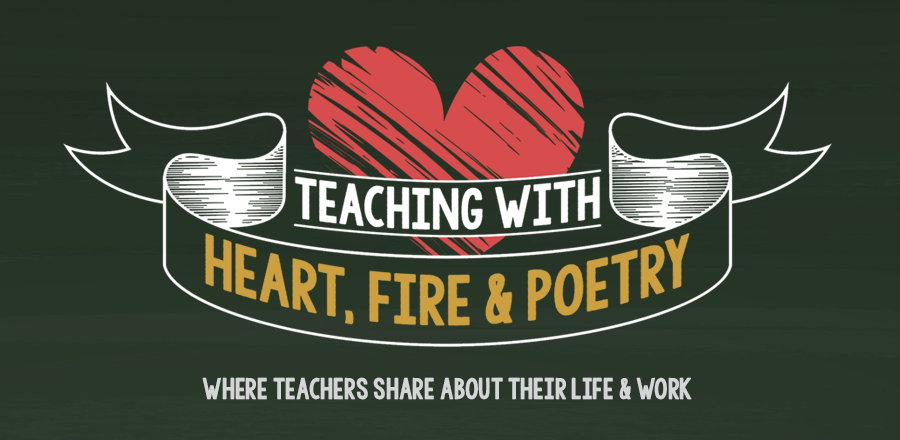
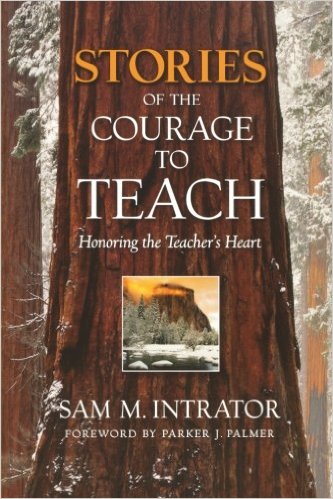
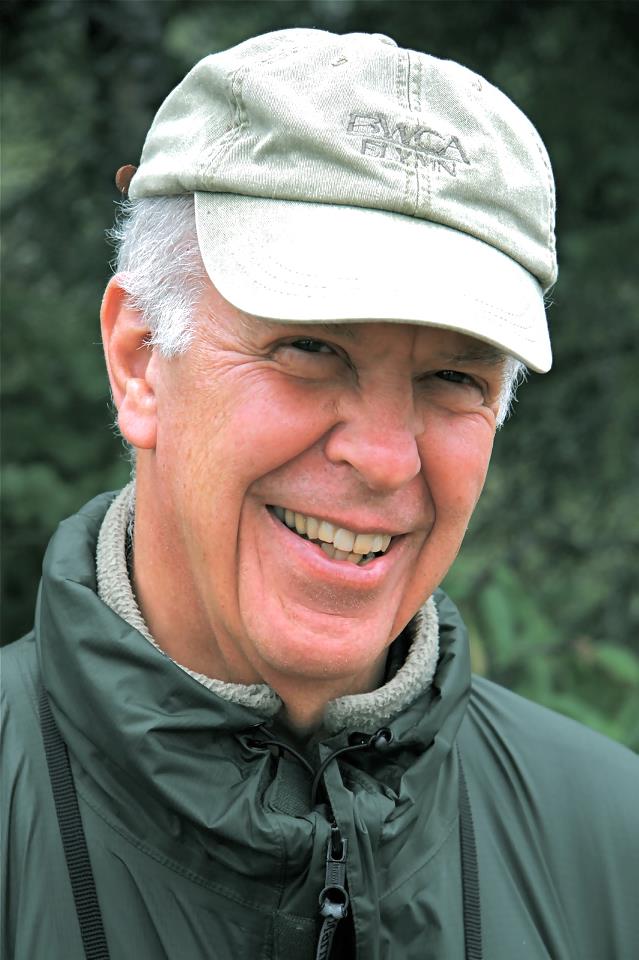
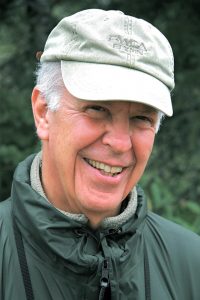
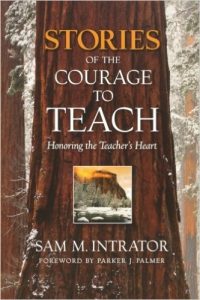

Leave a Comment